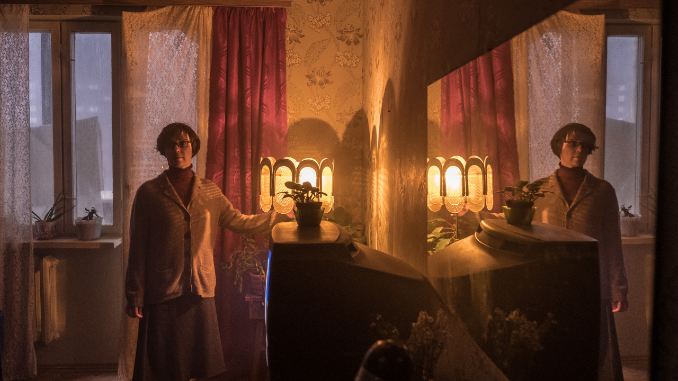Petrov’s Flu Is Brilliantly Feverish Filmmaking

Perhaps the best way to describe Petrov’s Flu, the latest from Russian stage and film director Kirill Serebrennikov, is as an extended cinematic fever dream. However, this simple assessment doesn’t adequately capture the film’s overarching artistic thoughtfulness. It never descends into pure Dadaist absurdism, instead crafting a hallucinatory environment that’s politically poetic in narrative and incisively innovative in visual style. Though Petrov’s Flu is totally non-linear and at times deliriously dense, its 145-minute runtime hardly weighs on the viewer. Serebrennikov creates a compelling labyrinth of a story, composed of delusions, memories, projections, fantasies and banal real-life occurrences—all seamlessly blending and blurring together with exquisite precision.
Based on the 2016 novel The Petrovs In and Around the Flu by Alexey Salnikov (a hit in Russia that’s yet to be translated into English), the film begins with Petrov (Semyon Serzin) on a packed bus in bustling Yekaterinburg on New Year’s Eve. Pale, clammy and incessantly coughing, Petrov looks so ill that a woman gives up her seat and demands he get off his feet. “You look cancerous,” she plainly observes. “It’s just the flu,” he counters before taking a load off. Just one minute later, the bus comes to a screeching halt. Petrov is beckoned off the vehicle, given a rifle and ordered to partake in a makeshift firing squad. Citizens in suits and lavish fur coats are unloaded from an unmarked van, lined up against a wall and swiftly shot dead. He’s thanked for his service and allowed to re-board the bus. His fellow riders look on behind dingy, fogged glass—their faces are blank, almost bored.
This all occurs less than five minutes into the film, imparting a sense of whiplash onto the viewer that is exhilarating in its immediacy. It becomes increasingly clear that very little of what actually occurs in the film is rooted in objective observation, opting for an intangible psychedelic concoction brewed from one’s innermost intrusive thoughts and brain-melting febricity. After all, the flu Petrov’s been stricken with does begin to induce marked hallucinations—and his librarian ex-wife (Chulpan Khamatova) and their son (Vladislav Semiletkov) catch the very same bug.
Apparently, this sickness has completely ravaged the entire population (an eerie pandemic allusion considering it was filmed in 2019). Several other characters waltz in and out of Petrov’s sickly jaunt across the city—trickster neighbor Igor (Yuri Kolokolnikov), deeply troubled aspiring writer Sergei (Ivan Dorn), childhood friend Sasha (Yuri Borisov)—their outlandish interactions akin to waking nightmares. Despite violence, tragedy and bleak selfishness, a distinctly Russian streak of humor ultimately defines each encounter, casting a preposterous air that’s grimly delightful to relish in.
-

-

-

-

-

-

-

-

-

-

-

-

-

-

-

-

-

-

-

-

-

-

-

-

-

-

-

-

-

-

-

-

-

-

-

-

-

-

-

-








































